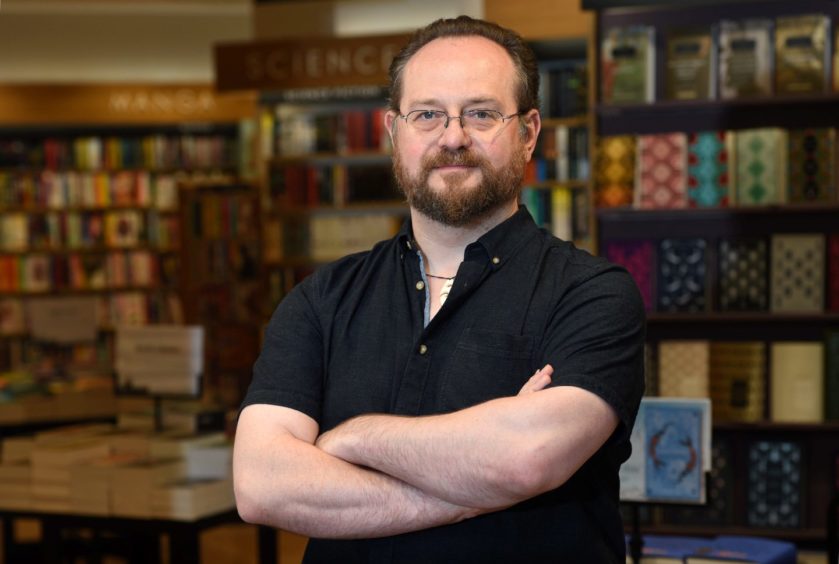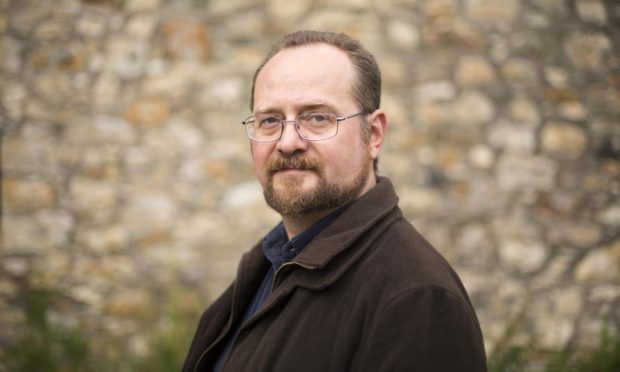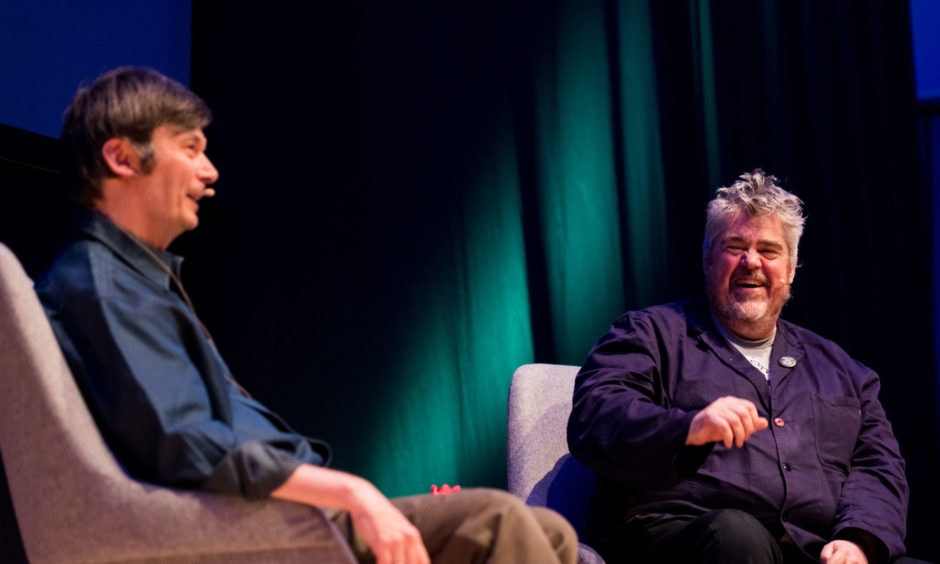Two of Scotland’s top crime writers say it is more challenging to portray their police protagonists as heroes amid mounting global distrust of officers.
Ian Rankin and Stuart MacBride discussed their work in one of the highlights of the weekend’s virtual Granite Noir crime-writing festival.
The pair opened the award-winning event, which is produced by Aberdeen Performing Arts (APA), on Friday – setting the stage for a stellar line-up of authors from across Scotland, Scandinavia and the US.
Over three days, book fans had the opportunity to attend a wide variety of online crime fiction workshops and interviews, gaining an exclusive insight into world-class writers’ lives and work.
Rankin’s Ian Rebus and MacBride’s Logan McRae are two of the genre’s most famous detectives.
But much has changed since Rebus first appeared in 1987 and McRae emerged in 2005 as Aberdeen’s equivalent to the iconic Edinburgh character.
Depicting police officers in crime fiction in 2021
Rankin and MacBride opened up about how global events like the death of George Floyd in America and the Black Lives Matter movement have affected public perception of the police – and made their jobs as writers trickier.
Speaking at the event, Mr Rankin explained the “difficult position” many crime fiction writers find themselves in.
He said: “The police detective as the main character in crime fiction seems to be disappearing fairly quickly.
“It seems to be less popular and fewer writers are doing it compared to how many did it previously.
“I started to wonder if that was part of people starting to realise that the cops aren’t always the good guys.
“Crime writers in the States are now being asked by readers how they can justify making the uniformed cops the good people in the books, when looking at Black Lives Matter and cops beating the living daylights of black people and killing them.
“And it’s an awkward question that we should probably come up with a defence for, because though I’m lucky in a way that Rebus is no longer a cop, both Stuart and I tend to write stories about the good cops.”
Mr MacBride added: “To me, that doesn’t say that we should stop writing about police officers in the US, rather that there is a really strong basis for a plot for a crime novel.
“Ever since we lived in caves, we’ve been telling ourselves stories about the things that society was scared of and that’s what crime fiction does today and what writers explore.
 “People are now afraid of the police in America, because they can tear gas you, kneel on your throat and shove you over when you are a 70-year-old man, so you crack your skull open.
“People are now afraid of the police in America, because they can tear gas you, kneel on your throat and shove you over when you are a 70-year-old man, so you crack your skull open.
“These are the things that society is now becoming afraid of and it’s really quite sickening that the people we look to protect us are now the ones that so many people have to be afraid of.”
In an hour-long interview with host Fiona Stalker, the novelists also shared their personal experiences in lockdown, where they draw inspiration for their characters from and the importance of research and authenticity in their books.
Read more:
-
Exclusive Granite Noir interview with Val McDermid
-
Granite Noir: Meet David Baldacci, the global crime-writing superstar who is a fan of Doug Henshall’s Shetland
Other highlights included the appearances of Scandinavian best-seller Jo Nesbo, creator of the classic Harry Hole series, top American writer David Baldacci, and the legendary Scots crime writer Val McDermid.
On Saturday, Kirkcaldy-born McDermid presented her take on Inverness‐born Josephine Tey – a crime writer popular from the 1930s through to the 50s – as part of her collaboration with Backlisted Podcast, which has racked up more than two million downloads among book fans.
All of the events were live-streamed for free on APA’s website, giving thousands of people from all over the world unlimited access to this year’s Granite Noir festival.


